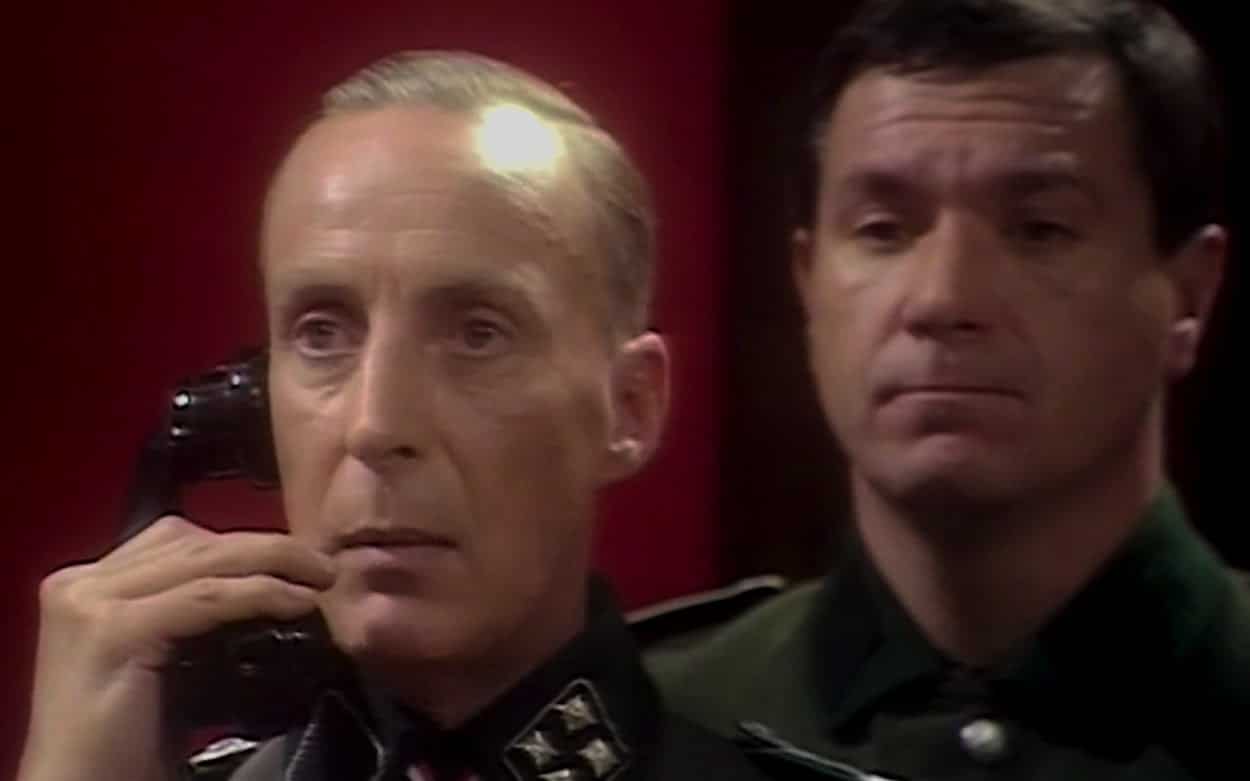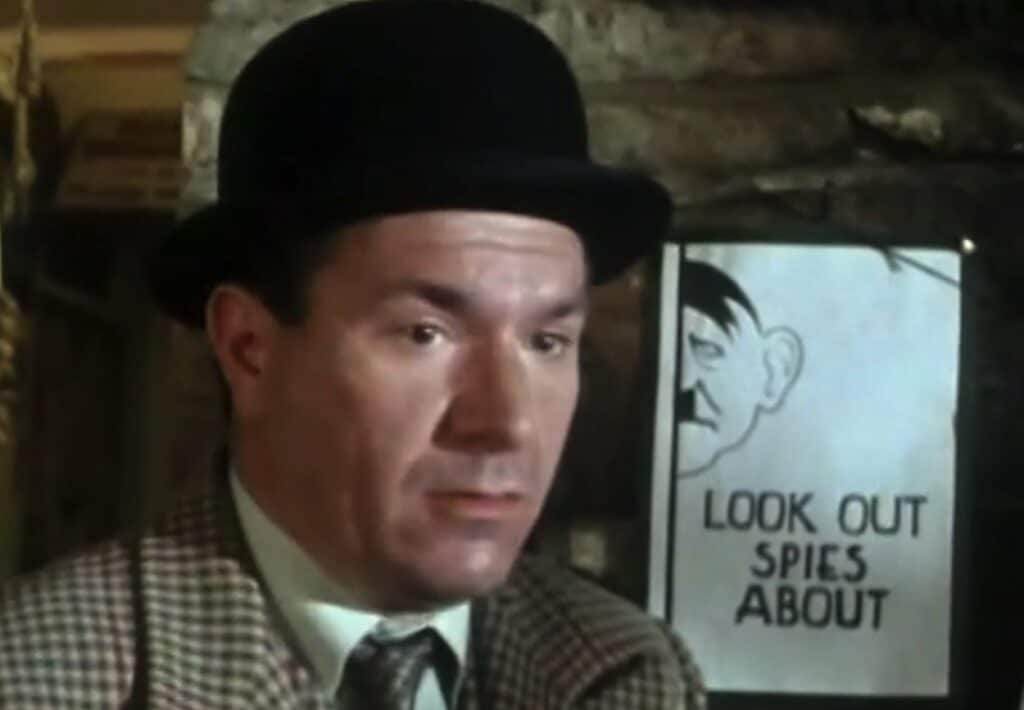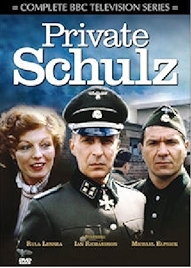The six-part TV series Private Schulz was a hit when it first aired and has become something of a cult since it was first broadcast in 1981. Made by the BBC in collaboration with the Australian ABC, it was the last outing for the great TV writer Jack Pulman, whose I, Claudius adaptation had been one of the great successes of the 1970s and who was the BBC’s go-to man for adaptations of big novels (Leo Tolstoy’s War & Peace, Henry James’s The Golden Bowl, Thomas Mann’s Buddenbrooks).
It was also the first, and only collaboration between its stars, Michael Elphick and Ian Richardson, both scene-stealers extraordinaire, but who came at upstaging from different ends of the spectrum. Elphick is the non-actor’s actor, or actor’s non-actor if you like, bumbling about as if grasping for his lines, or afraid of them, while Richardson fizzes with technique, his eyes popping as he sinks his teeth into whatever his latest role was.
It was Elphick’s first starring part, having been impressive in Dennis Potter’s Blue Remembered Hills and Jack Rosenthal’s The Knowledge – both also cult hits – and a vindication of a screen natural who’d accidentally backed into acting after taking an apprenticeship as an electrician at the Chichester Festival Theatre.
Richardson was already a star, having blazed through the 1960s on stage in London and on Broadway before TV confirmed his status in 1979’s Tinker Tailor Soldier Spy (more peerless TV, the one starring Alec Guinness).
The story is a true one – how the Germans planned to undermine the British economy by flooding the country with counterfeit bank notes. Operation Bernhard, as it was called, was successful enough that the Bank of England eventually changed the design of the notes. The 2007 film The Counterfeiters (Die Fälscher) covered Operation Bernhard in a more soberly factual, though still entertaining, way.
Here the tone is out-and-out comic, with most of the fun coming from the interchanges between Schulz (Elphick), a cowardly petty thief and conscript with an eye always on the main chance, who talks the Nazi Major Neuheim (Richardson) into putting him in charge of the operation to forge British five pound notes, a scheme Neuheim thinks he came up with, his vanity being a blind spot Schulz knows how to exploit.
It’s the interplay between the high-handed but labile Neuheim and the private he endlessly underrates that drives the comedy. Meanwhile, a connection is kept to the reality of the situation in the relationship between Schulz and Jewish master forger Solly (Cyril Shaps) – the entire operation is being run out of a concentration camp.
Billie Whitelaw provides a teasing light relief and useful explicatory device, as the tart with a heart Schulz has a soft spot for, but who won’t sleep with anyone below the rank of major. So they talk instead.
Each episode opens with a bit of actual cinema newsreel, either from the Germans, revoiced non-ironically into English, allowing English speakers a rare glimpse of Nazidom as it sold itself to its own people – as a noble, joyous endeavour. Or sometimes from the Allied side, especially as the tide turns and the Thousand Year Reich starts to look like it might not see out the 1940s.
The six episodes run roughly as follow: 1) Meeting the key players and the hatching of the idea. 2) Getting the forging team together. 3) Schulz on a failed mission to England and then ahead of the advancing Allied troops in France. 4) Schulz back in Germany and involved in Neuheim’s scheme to buy up great art works with forged cash. 5) Panic in Germany as the Reich collapses and the counterfeiting operation is dismantled. 6) Schulz back in England, looking for the canister full of buried money he left there.
The funniest are the first three episodes but the energy stays high throughout. No one speaks in cod-German accents, apart from Schulz when he’s in England, to indicate how much he sticks out. Here Pulman also takes a few potshots at British officiousness and insularity in a style famliar from the TV show Dad’s Army.
Elphick may switch accents (marginally) but Richardson gets to play three different characters. Neuheim, eternally trying to maintain his dignity, is a brilliant creation. But he also plays Gerald Melfort, a vain double agent in England, and Stanley Kemp, the Scottish criminal Schulz co-opts into helping him retrieve the money he left behind during the war (and which is now underneath a public toilet). All three – Neuheim/Melfort/Kemp – are a thorn in Schulz’s side.
Thanks to the Australian money production values are high for a TV show from this era, and, though Elphick would go on to greater success, riding through the 1980s in the TV series Boon, and so would Richardson, in the original House of Cards, both are at the top of their game here, feeding off each other on one of those rare occasions where the mix of combat and collaboration is just right. A fine monument to two great actors.
Private Schulz – Watch it/buy it at Amazon
I am an Amazon affiliate
© Steve Morrissey 2022


